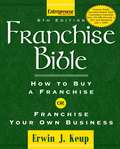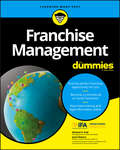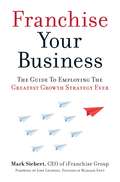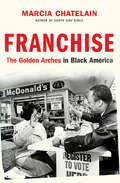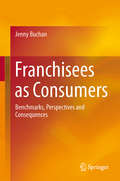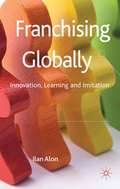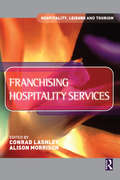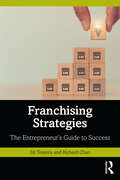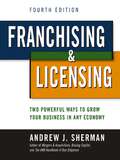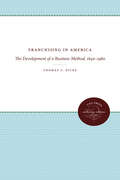- Table View
- List View
France Telecom (A): A Challenging Restructuring
by Cynthia A. Montgomery Ashley V. WhillansThese cases explore the impacts of industry shocks, resulting corporate actions that had a devastating impact on employees, and the legal conviction of corporate leaders for "institutional harassment. This case series follows the evolution of France Telecom from a national telephone monopoly to a private company facing two severe challenges: (1) The company's competitive advantage as a land-line carrier is being challenged by mobile carriers and the entry of new competition from other countries; and (2) the workforce is much larger than required by the company's new strategy, yet many employees are civil servants, making it very difficult to reduce headcount, despite many attempts to do so. As increasing pressure is mounted internally, the culture shifts from one where employees are proud to work to one described as "tense, even violent" and the physical and mental wellbeing of some employees becomes increasingly "fragile." The further impact of these developments is outlined in the (B) and (C) cases. The (A) case describes the development of the situation, the competitive challenges that prompted it, key decisions made by corporate leaders, and the impact of the same on various stakeholders. The discussion begins by asking students to apportion responsibility -how much is due to labor laws, to industry change; to past management; to current management; to the employees themselves? Have corporate leaders pushed employees too far, creating unacceptable levels of stress and unhappiness? What levers do leaders have to keep a business relevant and to do so in a way that is fair to all stakeholders? At its most fundamental, the case series helps students confront some fundamental tensions between the pressures and benefits of capitalism, the responsibilities of management, and the day-to-day and long-term impacts on employee well-being.
France Telecom (B): A Wave of Staff Suicides
by Cynthia A. Montgomery Ashley V. WhillansIn the B case we learn that at least 19 France Telecom employees took their own lives between 2006 and 2009, 12 others attempted suicide, and eight suffered from serious depression for reasons reportedly related to work. Some of these deaths occurred in public places, others on company grounds. Labor inspector Sylvie Catala conducted an investigation and found that the "lack of consideration or psychosocial risks in the restructuring is the result of a policy implemented throughout the country... and that the company's top executives put pressure on middle management , who passed on this pressure to workers." She concluded that the company's actions likely "endangered human life" and constituted "moral harassment."
France Telecom (C): An Unprecedented Trial
by Cynthia A. Montgomery Ashley V. WhillansIn the C case we learn that former CEO Didier Lombard, Deputy Chief Executive Louis-Pierre Wenes, Human Resources Head Olivier Barberot and France Telecom itself were charged for institutional harassment by French authorities, a first for a CAC 40 company. In December 2019 they were found guilty in a landmark ruling. Each was given a one-year jail sentence, with eight months suspended, and fined 15,000. France Telcom, which had since been rebranded as Orange, was fined 75,000 -the maximum allowed by French legal provisions at the time of the offenses.
France and Germany in the South China Sea, c. 1840-1930: Maritime competition and Imperial Power (Cambridge Imperial and Post-Colonial Studies)
by Bert BeckerThis book explores imperial power and the transnational encounters of shipowners and merchants in the South China Sea from 1840 to 1930. With British Hong Kong and French Indochina on its northern and western shores, the ‘Asian Mediterranean’ was for almost a century a crucible of power and an axis of economic struggle for coastal shipping companies from various nations. Merchant steamers shipped cargoes and passengers between ports of the region. Hong Kong, the global port city, and the colonial ports of Saigon and Haiphong developed into major hubs for the flow of goods and people, while Guangzhouwan survived as an almost forgotten outpost of Indochina. While previous research in this field has largely remained within the confines of colonial history, this book uses the examples of French and German companies operating in the South China Sea to demonstrate the extent to which transnational actors and business networks interacted with imperial power and the process of globalisation.
France and the Politics of European Economic and Monetary Union
by Fernando Lourenço Valerie CatonWhy did France, with its strong sense of national identity, want to give up the Franc for the Euro? Drawing on the author's experience as a British diplomat in Paris and on new archive evidence, this book explores how France's drive for European Economic and Monetary Union arose from the challenges posed by unstable global financial markets, the political demands of a rising urban middle class and the restoration of Germany's economic strength. It traces the unresolved Franco-German tensions over the design and political governance of European economic co-operation which led to crisis, and asks whether this ambitious European project can still become the force for modernisation and growth, and the shield against the extremes of globalisation and nationalism, that France's leaders hoped it would be.
France: Selected Issues
by International Monetary FundA report from the International Monetary Fund.
France: Selected Issues
by International Monetary FundA report from the International Monetary Fund.
Franchise Bible
by Erwin KeupThis proven, popular reference has been completely updated to better guide readers through the current franchise environment. Real-life examples of both service- and product-oriented franchises and useful checklists prevent mistakes and save time and money. Contact information for state and federal franchising regulatory agencies and a listing of useful publications guide new franchisees to the resources they need. Robert Smith, founder of Granite Transformations, describes how he successfully opened franchises nationwide based on guidelines in previous editions.
Franchise Management For Dummies
by Joyce Mazero Michael H. SeidPick the perfect franchise opportunity for you Become a commercial or social franchisor Must-have training and legal information online Buy, own, and operate a franchise If you want to be your own boss and stand on the shoulders of franchise giants, this accessible guide makes it easier than ever before. For franchisees, it takes you from the first steps of prospecting for a franchise to getting it up and running successfully. For prospective commercial and social franchisors, it explains how to determine if a business is franchisable and discusses how to properly design and develop a franchise system that you can grow and support. inside… Evaluate franchise opportunities Become a successful franchisor Join the growing social franchise sector Build your brand Grasp important legal issues Plan for future expansion Keep the cash flowing
Franchise Your Business
by Mark Siebert John LeonesioFranchise Your GrowthExpert franchise consultant Mark Siebert delivers the ultimate how-to guide to employing the greatest growth strategy ever-franchising. Siebert tells you what to expect, how to move forward, and avoid costly mistakes as he imparts decades of experience, insights, and practical advice to help grow your business exponentially through franchising.Learn how to:Evaluate your existing businesses for franchisabilityIdentify the advantages and disadvantages of franchisingDevelop a business plan for growth on steroidsEvaluate legal risk, obtain necessary documents, and protect intellectual propertyCreate marketing plans, build lead generation, and branding for a new franchiseCultivate the franchisee-franchisor relationship
Franchise: The Golden Arches In Black America
by Marcia ChatelainFrom civil rights to Ferguson, Franchise reveals the untold history of how fast food became one of the greatest generators of black wealth in America. Often blamed for the rising rates of obesity and diabetes among black Americans, fast food restaurants like McDonald’s have long symbolized capitalism’s villainous effects on our nation’s most vulnerable communities. But how did fast food restaurants so thoroughly saturate black neighborhoods in the first place? In Franchise, acclaimed historian Marcia Chatelain uncovers a surprising history of cooperation among fast food companies, black capitalists, and civil rights leaders, who—in the troubled years after King’s assassination—believed they found an economic answer to the problem of racial inequality. With the discourse of social welfare all but evaporated, federal programs under presidents Johnson and Nixon promoted a new vision for racial justice: that the franchising of fast food restaurants, by black citizens in their own neighborhoods, could finally improve the quality of black life. Synthesizing years of research, Franchise tells a troubling success story of an industry that blossomed the very moment a freedom movement began to whither.
Franchisees as Consumers
by Jenny BuchanFranchising is an increasingly important global business model, but how well protected are franchisees -the people who operate and make any franchise system really work? In this book, the author explores the many different roles that franchisees play in modern business, and their importance to the success of every franchise arrangement. As well as providing a comprehensive overview and analysis of the legal context of modern franchising relationships, and the different measures taken to deal with franchisee concerns, the author examines the "weak links" in contemporary franchising - the areas where franchisees are rarely appropriately protected. Despite all the rhetoric, franchisees remain awkwardly accommodated within the law, and they are in need of attention through improved consumer protection, corporate governance, and business insolvency/bankruptcy laws. Franchisees As Consumers examines why franchisees remain more vulnerable under the law than employees and suppliers, and what can be done about it.
Franchising Globally
by Ilan AlonFranchising Globally is first of its kind to examine franchising both from an entrepreneurial and from an international perspective. The book includes theoretical discussions and practical examples of international franchising as well as both micro and macro studies of franchising environments in different parts of the world.
Franchising Hospitality Services (Hospitality, Leisure, And Tourism Ser.)
by Conrad Lashley Alison Morrison'Franchising in the Hospitality Industry' provides an overview of the issues, debates and challenges associated with business franchising. In two parts, this text firstly looks at the issues from both an academic and practitioner perspective. The second part looks more closely at service sector groups in the hospitality industry, such as hotels, leisure and catering using national and international examples and illustrations. These demonstrate how the theories and debates discussed in the first part, are tackled in real life situations. Examples used are from well known companies such as McDonalds, Baskin Robbins, Burger King, Choice Hotels, Holiday Inn, Domino Pizza, Pierre Victoire amongst others.
Franchising Strategies: The Entrepreneur’s Guide to Success
by Ed Teixeira Richard ChanA comprehensive and accessible companion to a proven business model, this book shows how to franchise an existing business, supported by case studies, data, and research reports on the franchise industry. For small to medium sized businesses, franchising can lead to successful and profitable growth, and plays an important role within the US economy. Utilizing a proprietary dataset with the most up-to-date statistics regarding a range of franchising trends, this analytical guide is based on management research frameworks that will lead to better understanding of a range of franchising strategies. Issues covered include: The franchising business model, including its history, economic impact, and regulations Critical factors that significantly influence franchising success, enabling a comprehensive feasibility analysis of franchising potential or existing business ideas Implementation components of franchising strategies, such as different franchise structures, regional development plans, and future trends With its clear focus and practical orientation, this book will be a valuable resource for entrepreneurs, as well as undergraduate and postgraduate students, interested in acquiring the knowledge, skills, and abilities to succeed in franchising.
Franchising and Licensing: Two Powerful Ways to Grow Your Business in Any Economy
by Andrew ShermanComprehensive and applicable to domestic and international franchising initiatives alike, this go-to guide remains the industry standard for insights on expanding your business.As an experienced corporate and transaction lawyer, author Andrew Sherman offers insider insights into unique opportunities for business growth--specifically, leveraging your intellectual capital through franchising and licensing. By helping you understand what intellectual capital is, what revenue your company is entitled to, and how to manage these intangible assets, he provides knowledge and tools to keep your business not only operating, but growing in any economy.Filled with examples, stories from the field, and forms for drafting franchising agreements and licensing programs, Franchising & Licensing simplifies the strategic, legal, financial, and operational aspects of these complex but highly profitable business strategies. You will learn how to: raise capital, structure agreements, and protect intellectual property; create market-responsive sales, marketing, and globalization strategies; establish quality control and compliance measures; and assess opportunities for mergers and acquisitions, joint ventures, and other alternatives to franchising This book also incorporates up-to-the-minute information on regulations, best practices, web strategies, branding techniques and global trademark laws, the new FDD disclosure format, and the latest franchising trends.
Franchising in America: The Development of a Business Method, 1840-1980
by Thomas S. DickeUsing a series of case studies from five industries, Dicke analyzes franchising, a marketing system that combines large and small firms into a single administrative unit, strengthening both in the process. He studies the franchise industry from the 1840s to the 1980s, closely examining the rights and obligations of both the parent company and the franchise owner.Originally published in 1992. A UNC Press Enduring Edition -- UNC Press Enduring Editions use the latest in digital technology to make available again books from our distinguished backlist that were previously out of print. These editions are published unaltered from the original, and are presented in affordable paperback formats, bringing readers both historical and cultural value.
Franchising: An International Perspective
by Frank Hoy John StanworthFranchising is a unique collection of articles that offers a handpicked selection of the main outstanding 'classic' texts in franchising knowledge. Researchers, students, professional advisors and anyone with a serious interest in the development of this extremely topical subject can now have, at their fingertips, the key articles and papers that have contributed to the philosophy of cloning business success. Many researchers in the field have only heard of the names, 'Brickley and Dark', 'Rubin', 'Hunt' or 'Oxenfeldt and Kelly', but may never have seen their seminal works through the difficulty in locating the material. Their original articles are reproduced in full here, complete with supporting analysis from the editors.
Franchising: Aspects of the Market Economy
by Richard Lloyd Frederick H. Gerlach Philip F. Zeidman Hanns Peter MuthSPECIAL NOTE: The original text of this book is in a format similar to an outline but without an outline's conventions. In order to follow the author's intent the following has been adopted to clarify sentences and paragraphs that are subordinate to preceding text. A chapter's primary sentences and/or paragraphs are preceded by a single asterisk(*). A sentence or paragraph that is subordinate to the single asterisk sentence/paragraph will have two asterisks(**). A sentence that is subordinate to the one with two asterisks will have three asterisks(***) and so on. Ask most people what a franchise is and they will likely reply McDonalds or Burger King. This book outlines the many types of franchises available and serves a a primer for anyone interested in going into business for themselves. It includes information on both domestic and international franchising and provides guidance on getting in to franchising as a franchisor or a franchisee. It also provides insights about potential pitfalls.
Francisco Partners
by Josh Lerner David GalloFrancisco Partners (which focuses on buyouts of high-technology firms) aims to be the largest first-time fund ever raised. The rationales for the fund, fundraising strategy, and partnership terms and conditions are among the topics explored.
Francisco Partners Private Credit Opportunity Fund
by Luis M. Viceira John D. Dionne Ari Sunshine Soracha PrathanrasnikornIn April 2020, Scott Einsenberg, the Head of Credit at the private equity firm Francisco Partners, is deciding whether to go ahead with extending a private lending agreement to Eventbrite, Inc. (NYSE: EB), a leading global event management and online ticketing technology platform that has been severely impacted by the cancellation of events in the face of the global coronavirus pandemic. These would be one of the first investments the recently raised Francisco Partners Credit Opportunity Fund ("FP Credit") would make. The case provide students with opportunities to explore private debt markets, the structure, strategy, and management of private credit funds, the evolution of credit and private credit in recent years, the structure and pricing of private credit agreements, the risk and return of private credit as an investment, and the analysis of a specific investing opportunity in this area.
Franco Bernabe at ENI (A)
by Linda A. Hill Jennifer M. Suesse Mara WillardDescribes Franco Bernabe's ascent to leadership at ENI, Italy's national oil and gas company. Illustrates Bernabe's early career experiences in academia, as the chief economist at Fiat. Then describes his arrival at ENI during the early 1980s, where he became first the assistant to the CEO and then director of strategic planning. In 1992, Bernabe was unexpectedly appointed by the Italian government to head the company's privatization process. Bernabe was only 42 years old at the time. Immediately after his appointment, Bernabe dealt with many crises, including Italy's Clean Hands corruption scandals, which implicated his entire executive team. This case focuses on his first year as CEO.
Franco Bernabe at ENI (B)
by Linda A. Hill Jennifer M. Suesse Mara WillardSupplements the (A) case.
Franco Bernabe at ENI (C)
by Linda A. Hill Jennifer M. Suesse Mara WillardSupplements the (A) case.
Franco Modigliani and Keynesian Economics: Theory, Facts and Policy (Perspectives in Economic and Social History)
by Antonella RancanThis book follows the intellectual path of Franco Modigliani, Nobel Prize winner and one of the most influential Keynesian economists of the twentieth century, tracing his development and examining the impact of his research. The book begins with Modigliani’s early work as a young law student in 1930s Italy and traces his development through his emigration to the US, his introduction to Keynes’ General Theory at the New School, and his seminal 1944 article on Keynesian and classical economics. The book also examines Modigliani’s pioneering theory of savings: the life-cycle hypothesis (with Richard Brumberg), and the Modigliani–Miller theorem, a cornerstone of modern theory of finance. The book argues that although Modigliani is placed amongst the most prominent Keynesian economists, his connections with Keynesian theory are of secondary importance until the beginning of the 1960s when he joined MIT. This is the first book to place Modigliani’s thought in its proper historical context, showing how it related to wider economic concerns and examining the social and political implications of his work. It will be of interest to scholars in the history of economic thought, and especially post-war American Keynesian economics.



